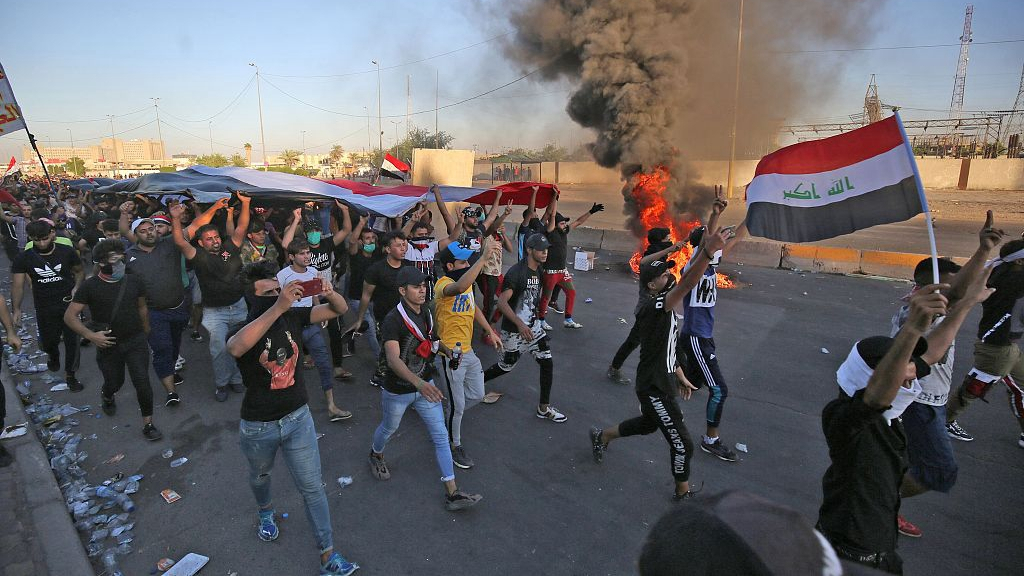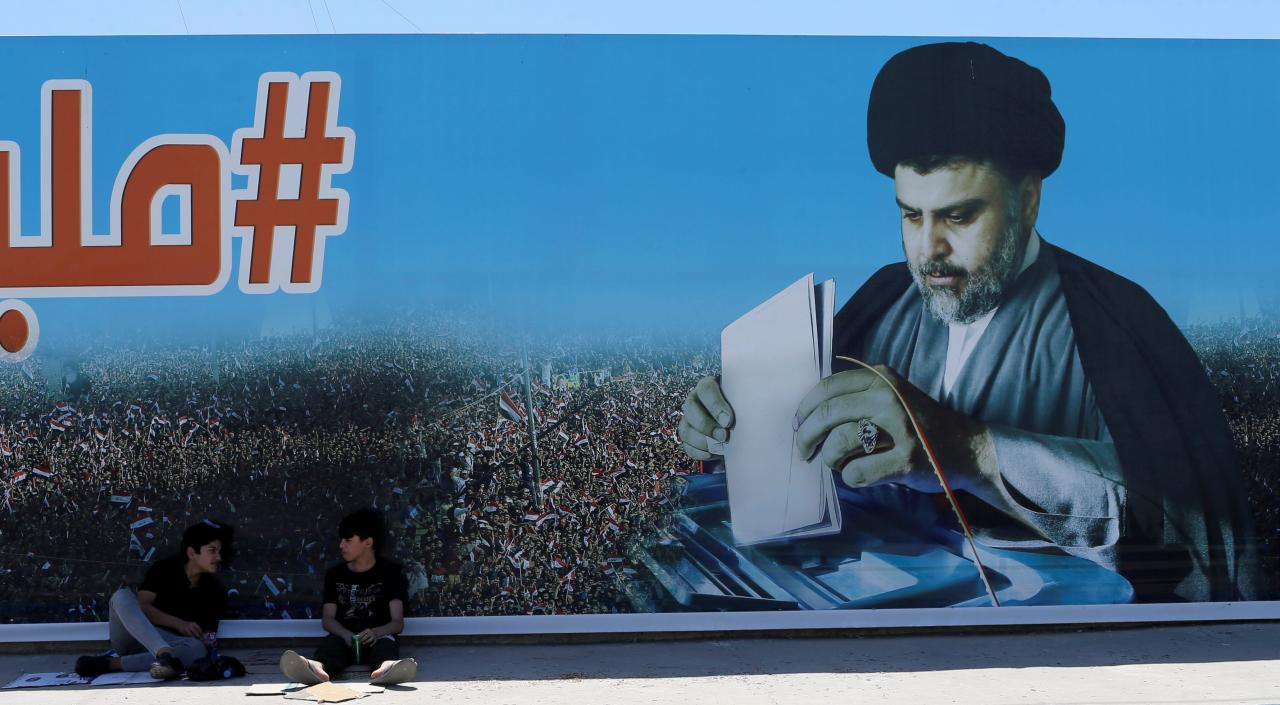
Editor's note: Guy Burton is an adjunct professor at Vesalius College, Brussels. The article reflects the author's opinions, and not necessarily the views of CGTN.
Observers of politics in Iraq can be forgiven for feeling whiplash. Last Friday, hundreds of thousands took to the streets to join the populist Shia cleric Muqtada al-Sadr's call to protest against the American military presence in their country. At the same time, al-Sadr withdrew his support for the wider protest movement against corruption and incompetent government that has engulfed the country. Why did he do this and what does this tell us about the state of Iraq's current political situation?
Iraq is experiencing pressure from inside and outside. Internally, the protests, which began in October, have deep roots. They reflect widespread public dissatisfaction with Iraq's political and economic direction. Protesters are frustrated at the slow pace of economic development and the lack of job opportunities, especially for the young.
Youth unemployment is around 16 percent and will likely get worse as the population grows. They are also unhappy that successive governments have failed to distribute the benefits of economic growth, with income per capita falling in recent years. Prime Minister Adil Abdul-Hadi resigned at the end of November, but Iraq's political parties have been unable to find a successor until now.
The failure to find a way forward has had international repercussions as well. Iran's leaders are concerned that their main allies in the majority Shia political parties have been unable to form a new government or quell the protests. They are fearful that if the protests continue unchecked that they will become a target for public protest.
Because of this, Iran has turned to al-Sadr. Muqtada al-Sadr is a political opportunist, having flipped back and forth between the different political groups and foreign powers in Iraq since 2003. He currently has a strong base of support in parliament, following the 2018 election. That proved important in the aftermath when he gave his backing to Abdul-Hadi to form a government.

A poster for Iraqi Shi'ite cleric Muqtada al-Sadr in the Sadr City district of Baghdad, Iraq, May 19, 2018. /Reuters Photo
A poster for Iraqi Shi'ite cleric Muqtada al-Sadr in the Sadr City district of Baghdad, Iraq, May 19, 2018. /Reuters Photo
When the protests began, al-Sadr withdrew his support for Abdul-Hadi in favor of the street. Meanwhile, more recently al-Sadr has condemned the U.S. and its infringement of Iraqi sovereignty when it launched the airstrike that killed Iran's General Qasem Soleimani and Abu Mahdi al-Muhandis.
This development seemed to suggest that a rapprochement between al-Sadr and the Iranians has happened. Sadrists were reported to have abandoned the encampments occupied by the protesters in public spaces around the country.
Several difficulties await both Iran and al-Sadr, however. First, not all of Iraq's political leaders are opposed to the U.S. military presence in the country. Although they share public anger against American violation of Iraqi sovereignty, the Sunnis, Kurds, and other minorities in the country accept the need for a U.S. presence, especially to train the armed forces and contain extremist groups like the ISIL.
Second, al-Sadr's status as kingmaker may not be as strong as he thinks it is. Both his earlier support for the protests and his close association with Iran may be seen as a way of asserting his position, especially in relation to the country's other main political leaders. But he may be looking in the wrong direction. While he and others have sought to manage and control the protest movement, it has become increasingly autonomous, both in its agenda and its organization.
In the wake of the Soleimani killing, the protests were temporarily sidelined, but activists sought to recapture the agenda by emphasizing their opposition to all forms of outside interference, both Iranian and American. In addition, the protest movement is acquiring its own leaders from among its activist ranks. While it is too soon to say that they can challenge Iraq's present political leadership, they could potentially do so, especially if new political parties and organizations emerge out of the movement.
(If you want to contribute and have specific expertise, please contact us at opinions@cgtn.com.)